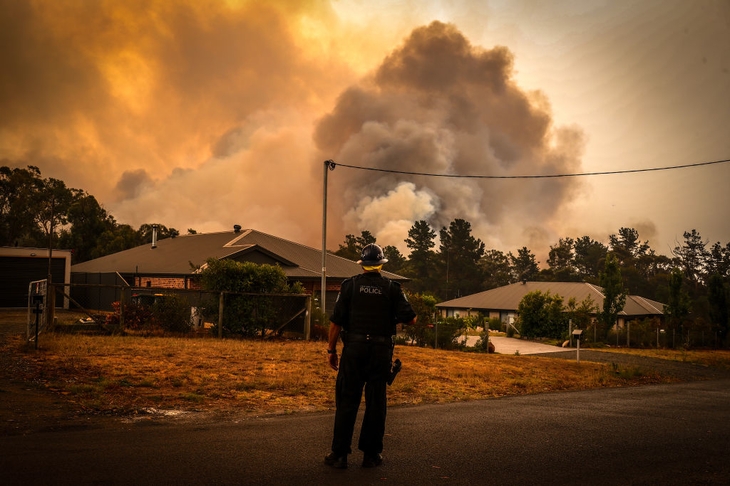I have long since learned, not least from my interview with Al Gore published here in 2017 that the surest way to get called a climate change denier is to quote genuine science that runs counter to the hyperbolic ‘science’ spun by the likes of Gore, Extinction Rebellion and the global Greta community. But no matter, here goes. No, the devastating bushfires in Australia are not a symptom of a world that is being consumed in conflagration caused by man-made climate change. Australian Prime Minister Scott Morrison, who has been described as a ‘climate criminal’ for suggesting that climate change had merely ‘contributed’ to bushfires rather than being their absolute cause is a lot closer to the reality than is former PM Kevin Rudd who on this morning’s Today programme described one of his own MPs as ‘pathetic’ for suggesting that a moralistic approach to climate change is obscuring difficult decisions which need to be made balancing carbon-reduction targets with economic growth.
It has become customary to see wildfires – either in Australia currently, the Amazon in August or last autumn’s serious fires in California – as evidence of runaway, accelerating global warming. Yet, contrary to the Greta-esque narrative that ‘the Earth is on fire’, the amount of land burned annually around the world by wildfire – as measured from Nasa satellite data – fell by around a quarter in the 17 years from 1998 to 2015. This was reported in a paper in Science Magazine two years ago, which mapped the change in incidence of fire across all continents. There were some parts of the world where the incidence of fire increased over that period, namely parts of northern Canada and Alaska, the US Mid West, parts (though far from all) the Amazon basin, southern Africa and a relatively small patch of central Australia. But this was more than offset by places where the incidence of fires reduced – most notably across large parts of West Africa, but also over most of Australia.
This is not to say that climate change has not increased the risk of wildfire in some places – some areas have seen an extension of the dry season accompanied by higher temperatures which promote the drying-out of vegetation. South Eastern Australia has endured an especially long drought over the past couple of years. But climate is only part of the story behind wildfires. A larger part is land use and direct human intervention in extinguishing fires. Changes in agricultural practice have had much to do with the fall in savannah fires in Western Africa. Indeed, in some parts of the world a reduction in wildfires is itself seen as an environmental problem, given that many species of plant require a cycle of burning and regeneration in order to survive.
Australia ought to be making its own contribution to moving away from fossil fuels, but as Scott Morrison has observed, it is beyond the power of Australians alone to control the climate (if indeed, the rest of us can control it either). What is in Australia’s power, however, is to manage to risk of bush fires – either by clearing deadwood from forests, creating fire breaks and not building human settlements in heavily wooded areas and so on. Without detracting from the long-term need to reduce carbon emissions, that is where the heat of the debate in Australia primarily needs to be in the wake of this disaster.







Comments